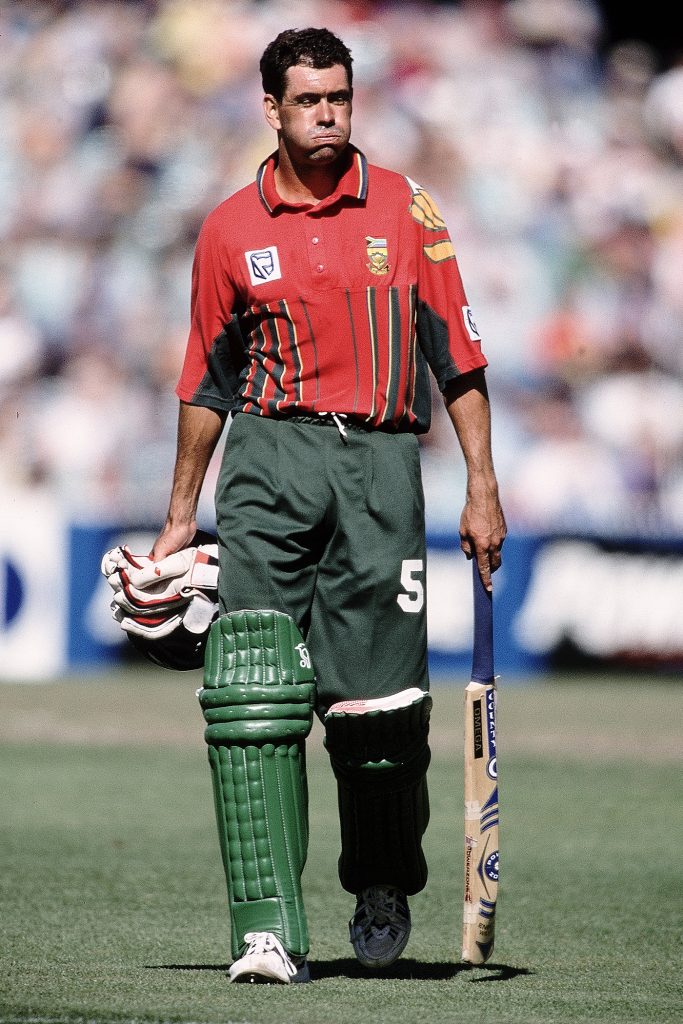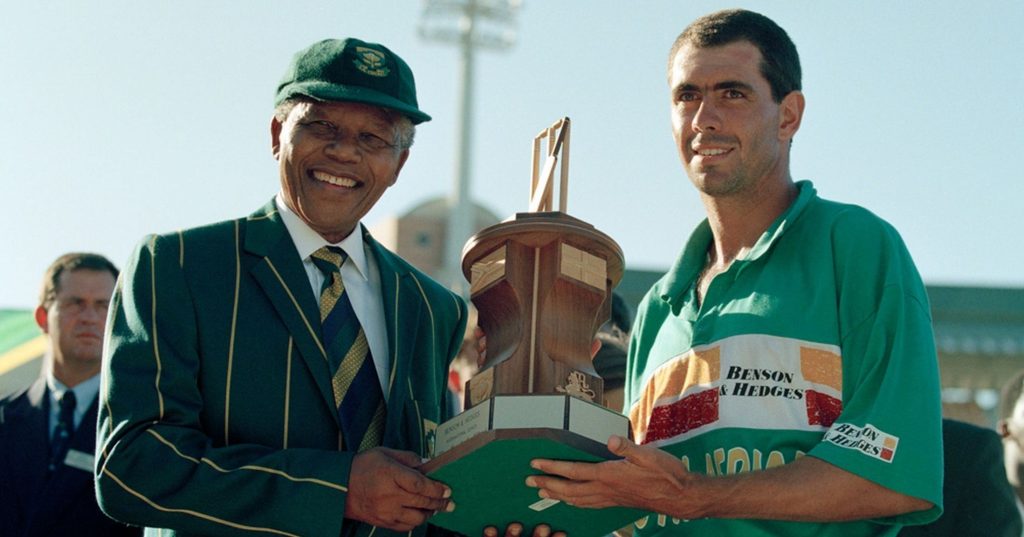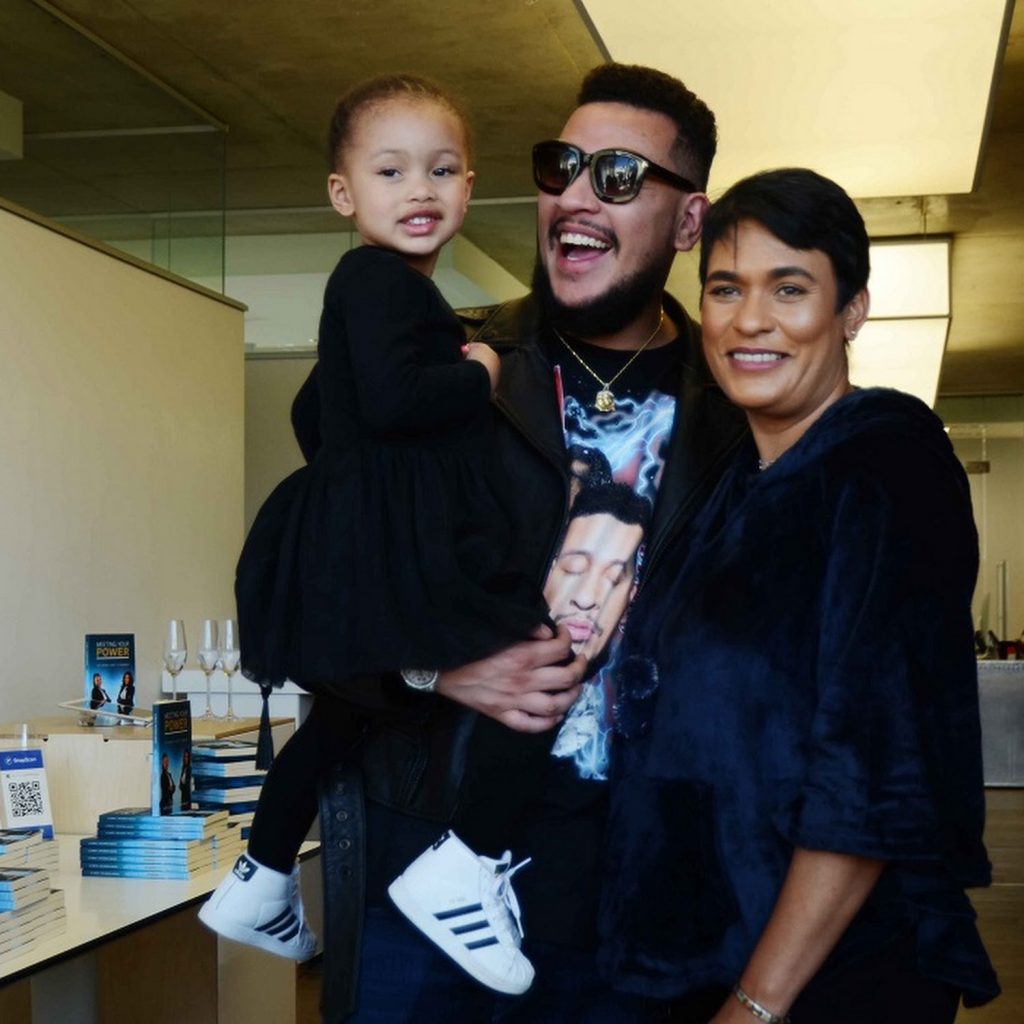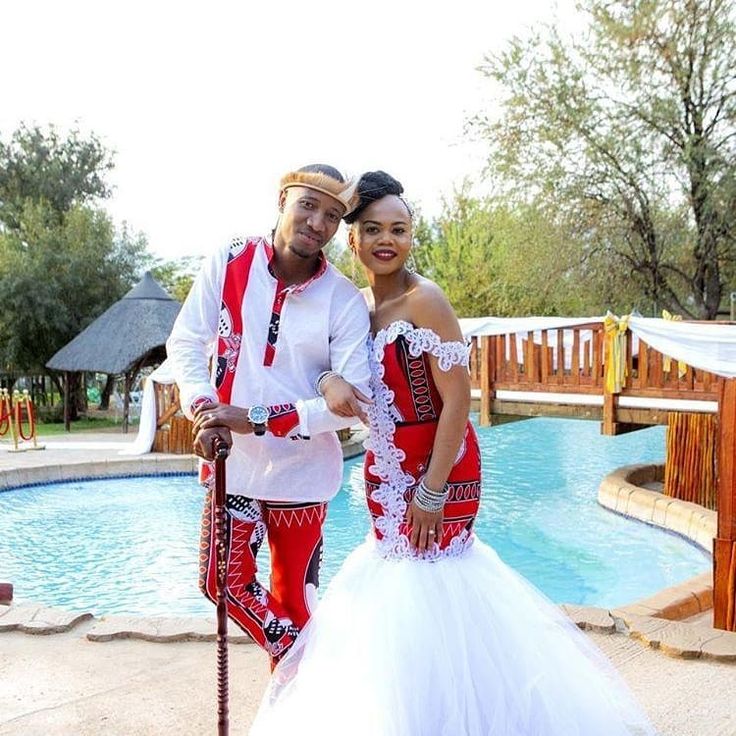Celebrating South African Legends: Hansie Cronje, Gary Player, and the Late Rapper AKA
Hansie Cronje (25 September 1969 – 1 June 2002) was a former South African cricketer and captain of the national cricket team. He played a significant role in South African cricket during the 1990s but became embroiled in a match-fixing scandal that had a lasting impact on his career. Here’s an overview of his life and career:
Early Life:
- Hansie Cronje was born on 25 September 1969 in Bloemfontein, South Africa.
- He came from a cricket-loving family, and his father, Ewie Cronje, was a former first-class cricketer.
Cricket Career:
- Cronje made his debut for the South African national team in 1992
- Cronje made his first-class debut for Orange Free State against Transvaal at Johannesburg in January 1988 at the age of 18. In the following season, he was a regular, appearing in all eight Currie Cup matches plus being part of the Benson and Hedges Series-winning team, scoring 73 as an opener in the final. In 1989–90, despite playing all the Currie Cup matches, he failed to make a century, and averaged only 19.76; however, in one-day games he averaged 60.12. During that season he scored his maiden century for South African Universities against Mike Gatting‘s rebels.
- Despite having just turned 21, Cronje was made captain of Orange Free State for the 1990–91 season. He scored his maiden century for them against Natal in December 1990, and finished the season with another century and a total of 715 runs at 39.72. That season he also scored 159* in a 40-over match against Griqualand West.
- Known as a gritty middle-order batsman and a useful medium-fast bowler, he quickly rose through the ranks and was named captain of the national team in 1994.
- Under Cronje’s captaincy, South Africa achieved notable successes, including series wins against Australia and England.
- He played 68 Tests and 188 One Day Internationals (ODIs) for South Africa.

Statistics
Under Cronje’s captaincy, South Africa won 27 Tests and lost 11, completing series victories against every team except Australia.
He captained the One Day International team to 99 wins out of 138 matches with one tied match and three no results. He holds the South African record for matches won as captain, and his record of captaining his side in 138 matches stands bettered only by Graeme Smith‘s 149 matches as ODI captain. His 99 wins as captain makes him the fourth-most-successful captain worldwide in terms of matches won, behind Ricky Ponting, Allan Border and Mahendra Singh Dhoni and in terms of percentage of wins (73.70), behind Ponting and Clive Lloyd.
Between September 1993 and March 2000, he played in 162 consecutive ODIs, a South African record.
Cronje has the record for playing the most consecutive ODI matches as captain (130) and is the only player to play in 100-plus consecutive ODI matches as captain.
Match-Fixing Scandal:
- In 2000, Cronje was implicated in a match-fixing scandal that shocked the cricketing world.
- He admitted to accepting money from bookmakers to influence the outcome of matches.
- As a result of his involvement in match-fixing, Cronje was banned for life from playing or coaching cricket by the United Cricket Board of South Africa (now Cricket South Africa).

Personal Life:
- Hansie Cronje was known for his strong Christian faith and had a reputation for fair play on the cricket field.
- His involvement in the match-fixing scandal tarnished his image and had a profound impact on South African cricket.
Death:
- On 1 June 2002, Hansie Cronje died in a plane crash in the Outeniqua Mountains near George, South Africa.
- The crash occurred while he was flying from Bloemfontein to George.
Hansie Cronje’s legacy is one of both cricketing success and controversy. While he played a crucial role in South African cricket, his involvement in match-fixing remains a dark chapter in the history of the sport.
Gary Player – One of South Africa Greatest Gulf player of all time
Early Life:
- Gary Player was born in Johannesburg, South Africa.
- He grew up during a time when apartheid was firmly entrenched in South Africa, and his success in golf played a role in breaking racial barriers in the sport.
Golf Career:
- Player turned professional in 1953 and became one of the most successful golfers in history.
- Known as the “Black Knight,” Player won a total of nine major championships during his career, comprising three Masters Championships (1961, 1974, 1978), three Open Championships (1959, 1968, 1974), two PGA Championships (1962, 1972), and one U.S. Open (1965).
- He is one of only five golfers to achieve the career Grand Slam, winning each of the four major championships at least once.
- Player’s work ethic, physical fitness, and dedication to the game set him apart in an era when golfers were not as focused on fitness and training.
International Impact:
- Gary Player is one of the most traveled golfers in history, winning tournaments on every continent.
- His international success helped popularize golf in regions outside the traditional strongholds of the United States and Europe.
Global Golf Course Design:
- Following his playing career, Player became renowned for his work in golf course design. He has designed and been involved in the construction of golf courses around the world.
- The Gary Player Invitational, a series of golf events hosted by Player, is known for its charitable contributions to various causes.
Fitness Advocate:
- Player was a pioneer in promoting the importance of physical fitness for golfers. He maintained a rigorous fitness regimen throughout his playing career, influencing subsequent generations of golfers.

Legacy:
- Gary Player’s legacy extends beyond his playing accomplishments; he is widely admired for his contributions to the game, sportsmanship, and philanthropy.
- He received numerous awards and honors, including being inducted into the World Golf Hall of Fame in 1974.
Gary Player’s impact on golf, both as a player and ambassador for the sport, is substantial. His achievements and contributions have left an indelible mark on the history of golf globally.
Gary Player, born on November 1, 1935, is a South African professional golfer widely regarded as one of the greatest players in the history of golf. Here is an overview of his life and achievements:
Early Life:
- Gary Player was born in Johannesburg, South Africa.
- He grew up during a time when apartheid was firmly entrenched in South Africa, and his success in golf played a role in breaking racial barriers in the sport.
Golf Career:
- Player turned professional in 1953 and became one of the most successful golfers in history.
- Known as the “Black Knight,” Player won a total of nine major championships during his career, comprising three Masters Championships (1961, 1974, 1978), three Open Championships (1959, 1968, 1974), two PGA Championships (1962, 1972), and one U.S. Open (1965).
- He is one of only five golfers to achieve the career Grand Slam, winning each of the four major championships at least once.
- Player’s work ethic, physical fitness, and dedication to the game set him apart in an era when golfers were not as focused on fitness and training.

International Impact:
- Gary Player is one of the most traveled golfers in history, winning tournaments on every continent.
- His international success helped popularize golf in regions outside the traditional strongholds of the United States and Europe.
Global Golf Course Design:
- Following his playing career, Player became renowned for his work in golf course design. He has designed and been involved in the construction of golf courses around the world.
- The Gary Player Invitational, a series of golf events hosted by Player, is known for its charitable contributions to various causes.
Fitness Advocate:
- Player was a pioneer in promoting the importance of physical fitness for golfers. He maintained a rigorous fitness regimen throughout his playing career, influencing subsequent generations of golfers.
Legacy:
- Gary Player’s legacy extends beyond his playing accomplishments; he is widely admired for his contributions to the game, sportsmanship, and philanthropy.
- He received numerous awards and honors, including being inducted into the World Golf Hall of Fame in 1974.
Gary Player’s impact on golf, both as a player and ambassador for the sport, is substantial. His achievements and contributions have left an indelible mark on the history of golf globally.
A look into the Life Story of the Late South African Rapper – AKA
AKA’s biography
AKA, whose real name is Kiernan Jarryd Forbes, was born and raised in Cape Town, South Africa. During his childhood, he resided with his grandmother in Mitchell’s Plain. In 1995, he moved to Johannesburg to live with his mother, Lynn Forbes.
AKA was 35 years old before his passing, and he was born on January 28, 1988.
During his time with his grandmother, Kiernan attended Holy Cross Convent in Cape Town. After moving to Johannesburg, he enrolled at Greenside Primary School and later joined St John’s College.
AKA’s father was Tony Forbes.
DJ Zinhle (Ntombezinhle Jiyane) was AKA’s girlfriend for three years. They met in 2012, and together they have a daughter named Kairo Olwethu Forbes, who was born on July 8, 2015. Kairo turned seven in July 2022.

Was AKA shot dead?
I’m sorry, but there seems to be an error or misunderstanding. As of my last knowledge update in January 2023, there was no information or reports about the death of AKA. Please note that my information might be outdated, and I recommend checking the latest news sources for the most recent and accurate information about AKA or any other events.
Aka with Family
AKA, the South African rapper and musician, often shares moments with his daughter, Kairo, and his mother, Lynn Forbes, on social media and in public appearances. Kairo is AKA’s daughter from his previous relationship with DJ Zinhle, and Lynn Forbes is AKA’s mother, who has been a supportive figure in his life and career.
These family moments often depict AKA spending quality time with his daughter and mother, showcasing a more personal side of the artist beyond his public persona. Whether it’s celebrating special occasions, going on outings, or simply spending time together at home, AKA values these family moments and often expresses his love and appreciation for his daughter and mother.
These glimpses into AKA’s family life not only humanize the artist but also highlight the importance of family bonds and relationships. They serve as a reminder that, despite his fame and success, AKA cherishes the time he spends with his loved ones and values the role they play in his life.

AKA MUSIC CAREER
He and his friends, Vice Versa and Greyhound, created the Entity hip-hop music group while they were still in high school. Kiernan went to study sound engineering after the group split in 2006. In the same year, he co-founded The I.V League with two other people. The I.V League signed up artists like ProKid, Khuli Chana, and JR. In 2009, Kiernan released his three songs, In My Walk, I Do, and Mistakes, while still under the I.V label. His first album, Altar Ego, came out in 2010. Two singles from the album, All I Know and Victory Lap, became great hits in Mzansi. Kiernan’s other albums include:
Levels (2014)
Be Careful What You Wish For (with Anatii) (2017)
Touch My Blood (2018)
Bhovamania (2020)

Some famous AKA songs include:
All eyes on me
Run Jozi
Badai Bulan Desember
Daddy issues
Bang
Let me show you
Do what you like
Kontrol
Baddest
Rep your city
Skip Away

